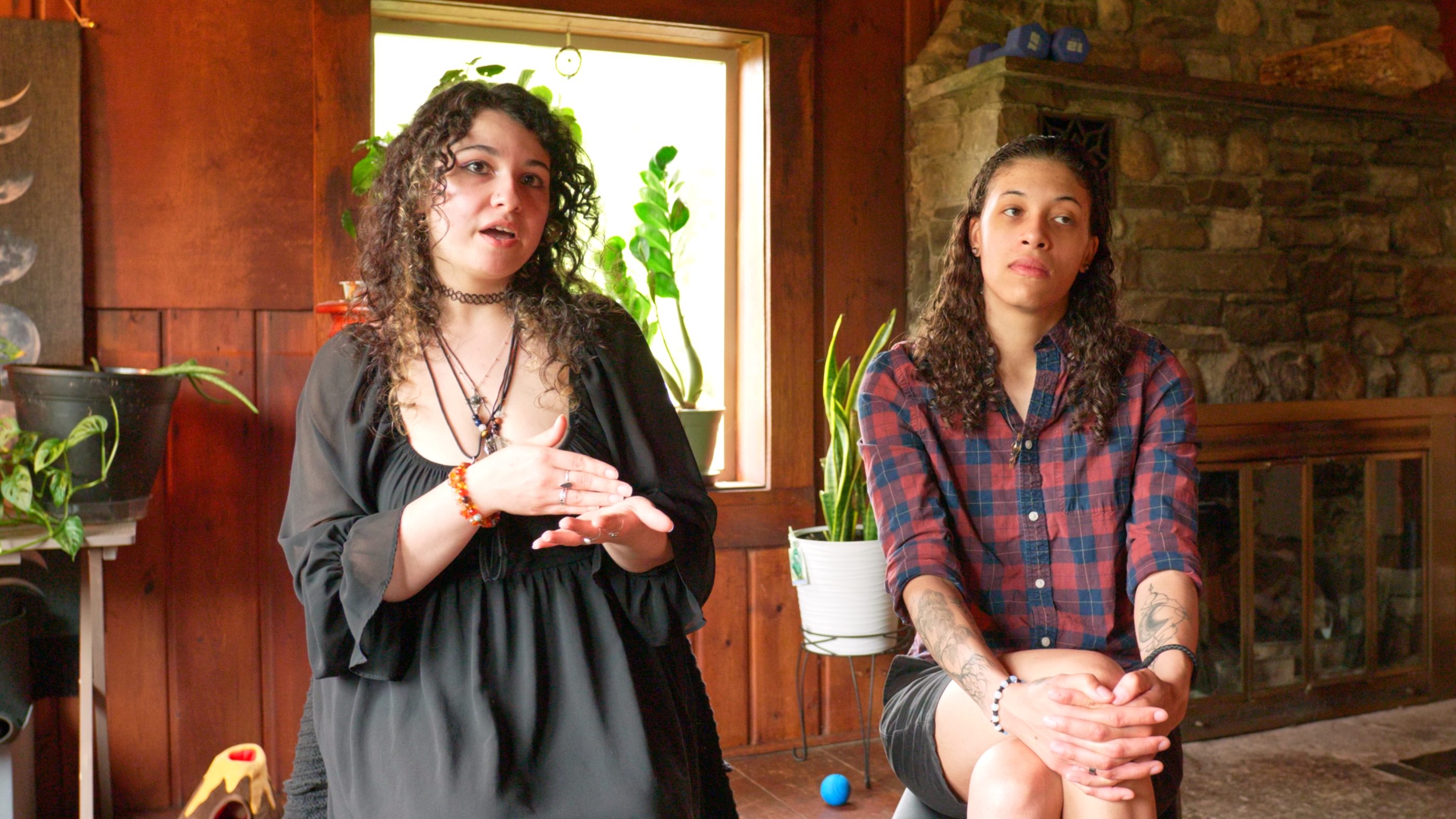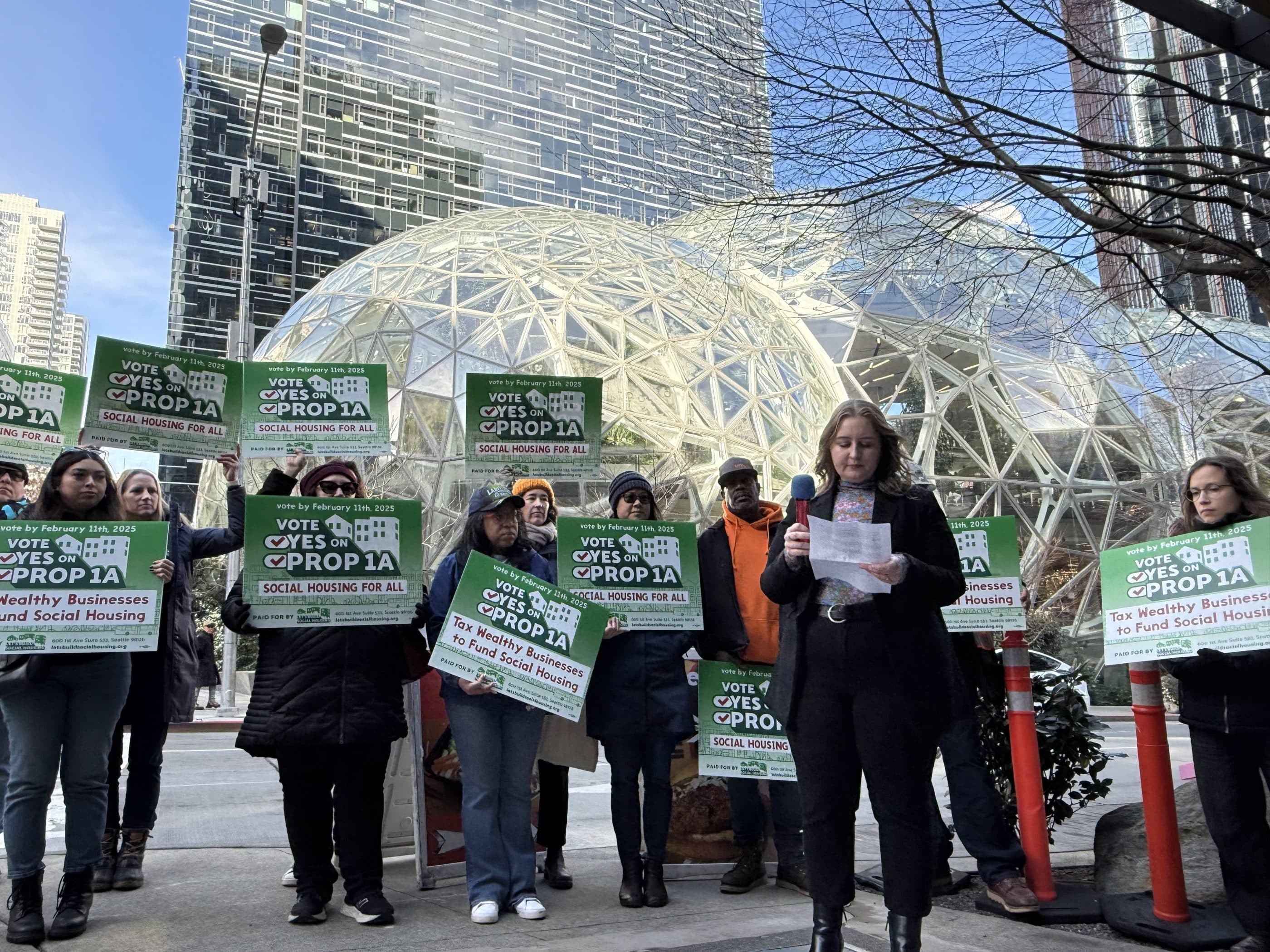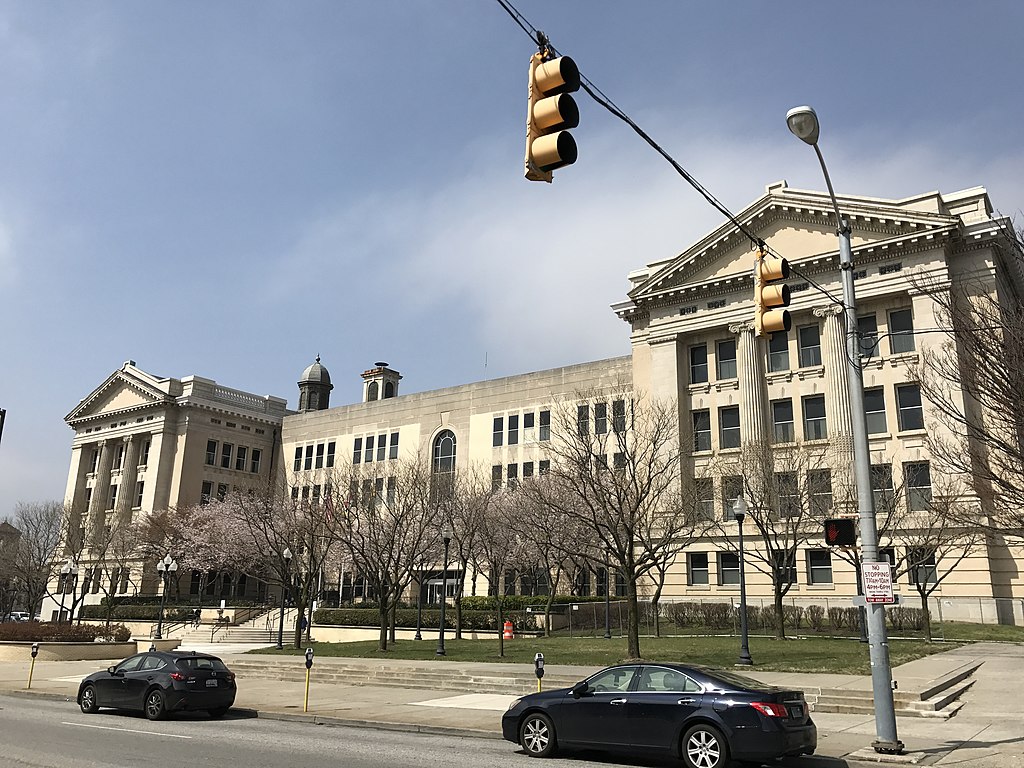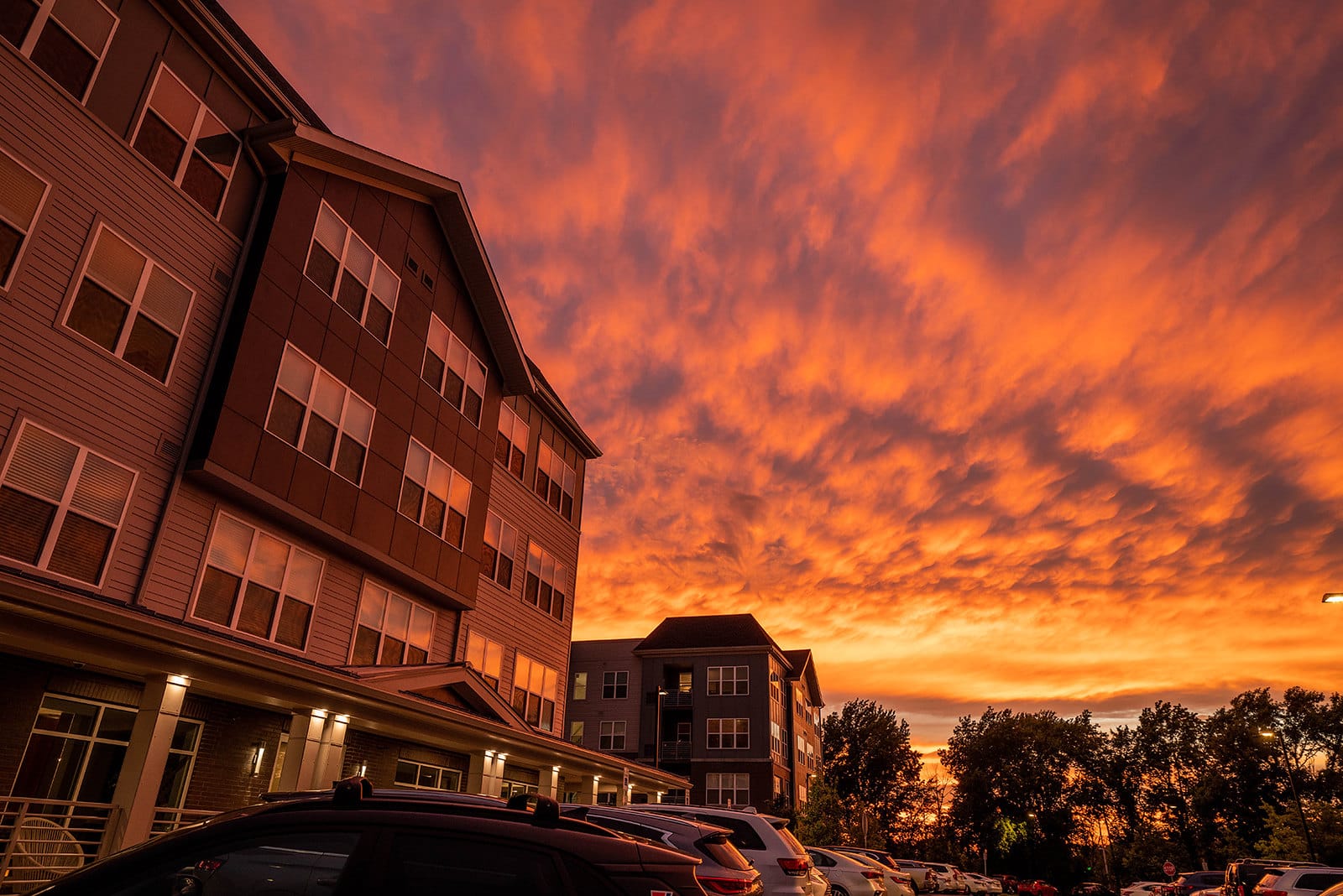Danby, New York, is a few miles from the college town of Ithaca, and just as picturesque. It grows verdant and humid in the summer months, with thunderstorms often forming in the afternoons. But in the winters, the area remains intensely cold. Although climate change has reduced the amount of snowfall in recent decades, there are still weeks in December and January when average temperatures remain stubbornly in the teens.
So if you were a renter in Danby and your heat stopped working during these months, you’d want your landlord to fix it quickly. And if the landlord not only failed to fix the problem but stopped answering your calls, the experience would switch from serene to stressful quite quickly.
That’s the situation that Katelyn Crandall and Quinn Knight found themselves in this past winter. The couple—both of whom are in their mid-20s and work in the specialty coffee industry—rent a house in the country for themselves and their three pets. In November 2023, flooding in the basement damaged the propane boiler that provided heat for their home, causing it to stop working completely. By April 2024, their landlord still had not fixed the issue, and the only representative of the landlord they had contact with often refused to answer calls.

In the past, legal and financial recourse in a situation like this would have been difficult, time-consuming, and expensive. But a New York law that took effect the same winter—the Tenant Dignity and Safe Housing Act—enabled Crandall and Knight to file a lawsuit in their town court to seek an order for repair and damages from their landlord. The new law enables tenants across New York State to file cases pro se (without legal representation) against landlords who violate the warranty of habitability, offering renters recourse when landlords fail to uphold their end of a housing contract.
Broken Boiler, Unanswered Calls
A few days before Thanksgiving 2023—Nov. 19, according to a petition filed with the town court—Crandall and Knight tried to light their boiler’s pilot light. It did not work. Their basement flooded periodically, as is somewhat common in the region, and the flooding had damaged the boiler. The tenants contacted their landlord’s representative, John Gilbert, who was out of state on vacation, according to the petition. “He didn’t get back until the first week of December,” recalls Crandall. “He immediately came over and tried to light the pilot light, and was unsuccessful.”
From then on, there was a string of delays, with Gilbert returning multiple times trying to figure out what the issue was; he was unable to diagnose and repair it.
Weeks later, Gilbert gave the tenants three options, all of which they found unacceptable, recalled Crandall and Knight. According to the court filing: “(1) they could move out for a month for Landlord to come and go as he pleases to install baseboard heating; (2) Landlord could purchase supplies for Tenants to install baseboard heating themselves; or (3) move out so Landlord can sell the residence.”

The couple recalled that during the conversation when their landlord laid out these options, he told them that they would lack heat all winter if they didn’t choose one of the options. Shortly after this call, communication dropped off. (John Gilbert, and the family trust he represented, did not reply to requests for comment.)
“We tried to call him a bunch of times, and he just wasn’t returning our calls,” recalls Crandall.
“So that’s what ultimately made us decide that we were going to file a petition against him.”
The petition she mentions starts a process enabled by the new law, the Tenant Dignity and Safe Housing Act (TDSHA). The petition forms, available on the New York Court System website (“RPAPL Article 7-D Forms” at the bottom of the page) allow tenants to file a case against landlords that do not maintain habitable housing, or housing that does not meet state and local code. TDSHA enables tenants to seek a court order to repair any conditions that violate state or local code and habitability requirements. Additionally, a court may order “[a]ny other relief that the court may deem just,” including financial compensation.
To file a TDSHA case, tenants must also have the petition served on the landlord. The law does not require a formal process server, increasing access to this legal protection by enabling landlords to be served papers via both regular and certified mail. The papers must be sent by an adult who is not a petitioner in the case, and proof of service must be filed with the court—via an additional document not yet available, as of July 29, 2024, on the New York Court’s website.
To make it easier for tenants, these forms and this process are “supposed to be designed so that someone [with a] high school education” could file them on their own without a lawyer, says Bill Niebel, a housing attorney who teaches at Cornell Law School. However, he says, they aren’t quite that accessible. “A person could benefit with some advice on filling them out.” Niebel teaches the Tenants Advocacy Practicum at Cornell, where law students work pro bono with tenants on housing issues.
Andrew Pei, a law student who took the practicum, engaged in extended representation of Crandall and Knight in court, with the supervision of Niebel. Pei, with some assistance from a another student and a notary public, walked the tenants through the process of filing the forms, got the forms served on Gilbert and Nob Trust and represented the tenants in court.
In Court
Because the law was new and unfamiliar, some education of the court clerks and the judge needed to happen, and the practicum helped with that, says Pei. For example, although the process looks similar to an eviction proceeding—both are summary proceedings that take place in town courts—there are some key differences in how the papers have to be served. The process is simpler for TDSHA than for an eviction, but the clerks did not know that, so the filing was initially erroneously rejected. The rejected filing was accepted the following week. Additionally, “during trial, we had to remind the judge that an order for repair could be granted,” explains Pei.
“Our landlord’s lawyer was trying . . . to diminish the experience—trying to make it seem not as bad as it actually was,” recalls Crandall, who testified in court. “I remember him asking me if I would have felt comfortable working on the heat in a flooded basement. And I said no. And then that argument was used, well, why should your landlord want to work in a flooded basement on a boiler?”

“Even though we had the law on our side, there was a lot of evidence that we still had to produce,” says Knight, adding that they bought a special thermometer that logs daily high and low temperatures to keep track of the indoor temperature and “had to make sure that we were keeping track of the NYSEG bills and the usage each month.”
Knight and Crandall have one larger dog, as well as a cat and a smaller dog that weighs less than 3 pounds. They bought space heaters and kept them running constantly around the house. “We would be worried about the animals when we left for work . . . we have three lives that we’re responsible for. They can’t fend for themselves,” recalled Crandall. “What if the power goes out?”
“We couldn’t turn them off, ever,” said Knight, when asked if they kept the space heaters running while they were out of the house, at work. “We know that it’s not safe to use space heaters that way. We literally had no choice because the temperature drops so quickly in here because of how fast the heat escapes.”
Because the house was badly insulated and drafty, sometimes even the space heaters couldn’t keep up. On one of the coldest nights, Crandall recalls, her pillow froze. “I didn’t know that TempurPedic products could freeze . . . there was no squish when I laid on it.”
The constant use of space heaters—which are less efficient than other forms of indoor heating—racked up significant energy costs for the couple. Their energy bill shot up by around $500 a month or more, getting as high as $1,600, says Crandall. “We had to set up a payment plan with NYSEG to be able to pay.” Plus “we were using our fireplace too, a lot. We were buying $60 to $80 worth of wood from Walmart maybe once or twice a week.”
The couple has still not caught up on their utility payments. “It’s definitely put a financial strain on our lives,” says Crandall.
How TDSHA was Born
In the past, tenants living in conditions like those experienced by Crandall and Knight could do little, in upstate New York, at least.
“Before December of 2023, there was no straightforward, [or] simple procedure, shall we say, whereby a tenant could… [get] a court order to make them make repairs,” explains Niebel. “They would have really had to get an attorney and file a full-blown civil action in the [New York] Supreme Court.”
Outside of New York City, which has its own law on the subject, “tenants were really limited to either waiting to get sued for eviction [for withholding rent], and then trying to file a counterclaim,” says Laura Felts, who has worked as a court advocate for tenants in Albany and Rochester, New York, “or filing a small claim really just for money, which wasn’t going to result necessarily in a repair getting done.”
The housing attorneys and advocates interviewed for this piece noted that calling code enforcement has also been an option for tenants, but that it often failed because some municipalities do not have code enforcement officers at all, and others have so few they do not investigate housing habitability issues. On the flip side, calling code enforcement could also result in an eviction if codes determined the housing was unsafe.
“I felt like I was just doing the same case over and over and over again,” says Mary Traynor, a housing attorney who worked with Legal Services of Central New York, providing pro bono legal services for tenants. “[It] is very gratifying to help the individual person who’s in crisis at that moment. But they’re going to be there in another year, and all their neighbors [are] going to be there every year or so.”
Traynor explains that grappling with this Sisyphean state of affairs was what led her to a community organizing training hosted by the Shriver Center on Poverty Law in 2018. “It was filled with people like me: frustrated legal aid lawyers,” she says. “[The training] opened my eyes to organizing as a way to really make some kind of systemic change.”
Around that time, Felts and Traynor were part of a group of housing and tenant advocacy organizations that began communicating and saw that there was a common issue. “We started to identify that everybody upstate was like, ‘We need to be able to sue for repairs,’” recalls Felts. “So many people get evicted because they’re not able to seek repairs proactively in a meaningful way.” In 2019, the group approached a New York assemblyperson in the Syracuse area, Bill Magnarelli, on the topic.
It didn’t start out well. “We got into a very, very heated discussion. Magnarelli was saying how he has always helped tenants,” recalled Traynor, who says that she and Palmer Harvey—two of the co-founders of of the Syracuse Tenants Union–had gotten up in frustration to leave that meeting when Magnarelli called to them, saying, “What do you want me to do?”
Traynor recalls that they told him, “We want you to pass a law so that tenants can sue their landlords for repairs in summary proceedings.” She remembers Magnarelli seemed open to the idea and told them to bring him some draft legislation.
“It was brought to my attention that tenants outside of New York City had no way of affirmatively bringing an action against a landlord for code and conditions violations in local courts,” recalled Assemblymember Magnarelli in an email to Shelterforce. Traynor and her boss, Dennis Kaufman of Legal Services of Central New York, began drafting the legislation, and, after what Magnarelli described as “extensive work on the bill with Mary, Dennis and Assembly Central Staff,” he sponsored the Tenant Dignity and Safe Housing Act in the New York State Assembly in late 2020. State Sen. Rachel May introduced it in the New York State Senate in 2021.
Organizers like Traynor, Felts, and countless others across New York cities, including Syracuse, Albany, Buffalo, and Rochester, mobilized tenants and supporters in their localities in support of the bill. In 2022, it passed and was signed into law, with an effective date of Dec. 30, 2023.
Outcomes, Repairs, Payments
Crandall and Knight were among the first tenants to test out the new law. They decided to take their landlord to court in December 2023 and filed the papers by the end of February 2024—a process that took longer than it likely will in future cases because their legal support had to educate themselves and the court clerks about the new process.
A few days after the court hearing in mid-April, the couple did in fact get a court order for a repair, as well as a money judgment against their landlord and the family trust that he represents. The judge ruled that the heating costs due to the use of space heaters had cost the renters an additional $2,244. However, during the course of the winter, Knight and Crandall had also negotiated a rent reduction of $300 for three months, which was deducted from the $2,244, resulting in a judgment to award the renters the difference: $1,344. The judge also decided on a rent abatement for December through April of $500 each month, or $2,500 for the whole period. Additionally, Crandall and Knight are to receive $2,000 in punitive damages from the landlord, because according to the judgment, they “should not have had to live under these conditions for five months.”
Ultimately, the repair was not even complicated or expensive. Once the other trustees in Nob Trust were informed that the trust had been sued, a nephew of John Gilbert, known to the tenants only as Matt, came to take a look. Matt called up someone he knew, informed the tenants they would be stopping by, and “that dude fixed it in like an hour and a half,” says Crandall. “No parts needed to be replaced.”
In a follow-up email Crandall said that the money that John Gilbert and Nob Trust owed them has taken the form of a few months of free rent. Their new landlord, the nephew, has been much more responsive in general, they say.
If we didn’t have an offer for free representation . . . I probably would have been more intimidated and less likely to attempt something like this.’
Quinn Knight
The TDSHA made it easier for Crandall and Knight to have recourse, but it doesn’t seem to have fully achieved its objective of enabling tenants to get fixes with no legal assistance. “I think that if we didn’t have an offer for free representation . . . I probably would have been more intimidated and less likely to attempt something like this,” says Knight. “The legal system is intimidating. And the wording that they use for everything is very complicated. The average person doesn’t really understand all of that.”
They only found out about the law through a legal hotline in the first place, says Crandall. ”Not everybody’s going to have the same resources that we were so lucky to have.”
Some other states have laws that allow tenants to take action when living in unsafe conditions. For example, in Kansas, tenants have the right to sue landlords for injunctive relief and damages if a rental unit is maintained in a condition that affects health and safety. However, there are highly populated states like California where tenants still have to rely on code enforcement, hire an attorney, or withhold rent and get taken to court, then file a counterclaim.
Even though they had to live through a winter without proper heat, Crandall and Knight are glad that this law came through to help them with their housing situation. “There should be way more laws in place that do protect tenants,” says Knight, “that force the landlord to do what they’re legally required to do, in a reasonable amount of time.”





Comments